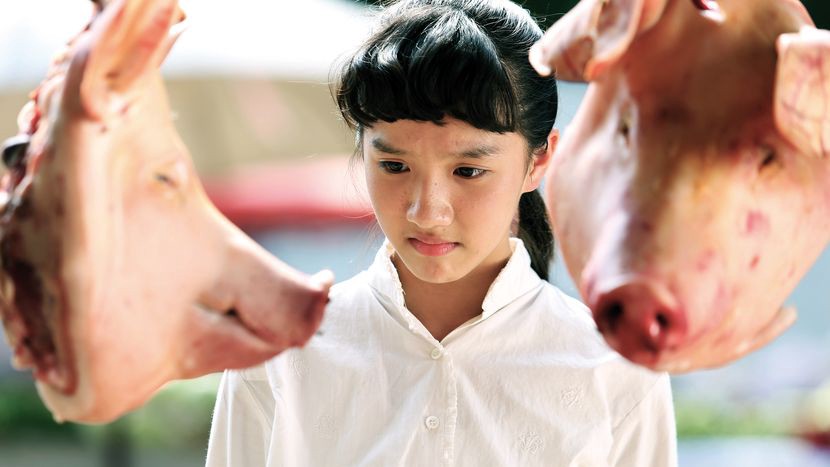“What’s in the Darkness” marks Wang Yichun’s directorial debut. The film screened at the Berlinale and the ninth FIRST International Film Festival in Xining, China. Yichun won the Best Director Award at the latter.
“What’s in the Darkness” will premiere at the 2016 BFI London Film Festival on October 13.
W&H: Describe the film for us in your own words.
WY: The film has a strong element of autobiography, specifically the crisis of a girl who grows up in a closed environment: a typical state-owned factory during the early ’90s .
W&H:What drew you to this story?
WY: The ’90s have been portrayed in many art works in recent years. I felt that many of them were prettified depictions, so I wanted to shoot a film as honest as possible.
W&H: What do you want people to think about when they are leaving the theater?
WY: I hope they travel back with me to those years. [I want them to feel like they were present in the story.] In fact, after watching the film, lots of audience told me they really did.
W&H: What was the biggest challenge in making the film?
WY: I didn’t attend film school, so the biggest challenge for me was the use of cinematic language. I [hope I’ll have the] opportunity to do better [next time].
W&H: How did you get your film funded? Share some insights into how you got the film made.
WY: I self-funded the film with all of my savings. It’s expensive self-expression, but I think [the story] deserved to be told.
W&H: What does it mean for you to have your film play at LFF?
WY: Great changes have taken place in China during the past twenty years. China was different from the Western countries, and even differs from the present China. But I think some people and things should not be easily forgotten. I hope through the screening at LFF that more Western audiences understand a little about a relatively closed era of China in the ’90s.
W&H: What’s the best and worst advice you’ve received?
WY: The best advice: Just do it.
The worst advice: It’s a waste of money and time.
W&H: What advice do you have for other female directors?
WY: The work should not be obsessed with [your own experiences] and emotions. Keep your vision as wide as possible.
W&H: Name your favorite woman-directed film and why.
WY: Ann Hui, a director from Hong Kong, is my favorite female filmmaker. I am fond of her restraint, and her sensitive, delicate, and calm female vision.
W&H: Have you seen opportunities for women filmmakers increase over the last year due to the increased attention paid to the issue? If someone asked you what you thought needed to be done to get women more opportunities to direct, what would be your answer?
WY: Indeed, I have seen more and more female directors working in recent years. I think women should seek the right of expression by themselves. If you cannot become a director at the very beginning, you could try to start writing a script or novel — if you choose not to speak for yourself for a long time, you will think it is not necessary to express yourself.







